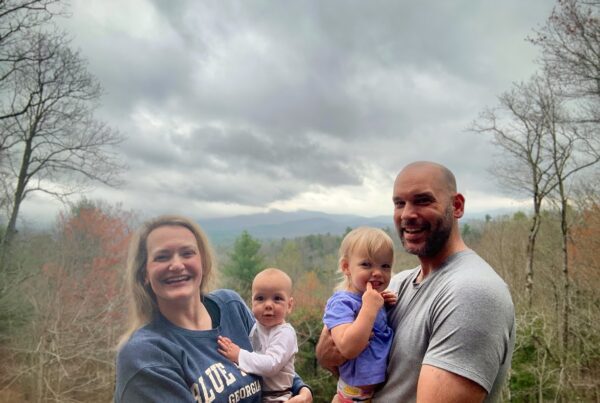Gratitude. It’s an attitude and a practice that underpins so much of what we do and believe as Jews. It’s why I love the rabbinic teaching about saying 100 blessings a day! The rabbis looked at Deuteronomy 10:12, which says, “Now, Israel, what does your God, ask of you? To walk in God’s ways, and to serve God.” The Talmud explains that the word mah (what) can be read as me’ah, meaning 100, suggesting that God wants us to recite (at least) 100 brachot (blessings) every day.
It’s the ultimate in mindfulness!
That’s the thought I had earlier this month when I was in Israel on our Men’s Journey. We had an evening program that wrapped up late. Many groups of guys on tour would either go to bed or go drinking afterward. But not our Federation men. Though I went back to the hotel, these guys said, “Let’s go to the Kotel!” And so they did, walking over in the darkness and expressing their gratitude for the friendships this trip had created, for the joy of being in Israel together, and for the privilege of having this homeland. So many blessings!
I love the ways Jewish tradition requires us to stop and think about all that we have, acknowledge all the ways we’re blessed and how we’re commanded share what we have. These mitzvot are not at all abstract, they’re rooted in real life and demonstrate that Jewish giving goes beyond charity (from the Latin caritas, or love), it is tzedek, justice.
There’s the mitzvah of Pe’ah, leaving the crops in corners of our fields for to the poor. We’re commanded, “You shall not pick your vineyard bare, or gather the fallen fruit…you shall leave them for the poor and the stranger.” And in the spirit of radical justice, the rabbis actually say that not leaving the corners of the fields for the poor is theft!
There are laws about how we treat animals, how we slaughter animals, and how we eat them. All express reverence for G-d’s creations, along with temperance about how we consume them.
There’s the shmitah year — the seventh year of the seven-year agricultural cycle, mandated for the Land of Israel. We let the earth lie fallow, giving it a rest, with no plowing, pruning or harvesting allowed. Another agricultural mitzvah with much to teach mankind about stewarding a warming earth.
And finally, there’s Shabbat itself. There’s no day I long for more. My family knows that my weeknights are ridiculous, and that most evenings I am out in our community. Without Shabbat to refocus me, bind me to what matters, and connect me to all my blessings, I could not do this work I that I love.
Thanksgiving is just days away. You may know that this uniquely American holiday, so reminiscent of Shabbat, has roots in Jewish text. In 1620, William Bradford, governor of the Plymouth Colony, compared the pilgrims’ flight from persecution in England to the Jews’ fleeing Pharoah. The Pilgrims recited psalm 107 from the Hebrew bible, a song of thanksgiving to G-d. In their gratitude they identified with us.
Have a wonderful holiday!






